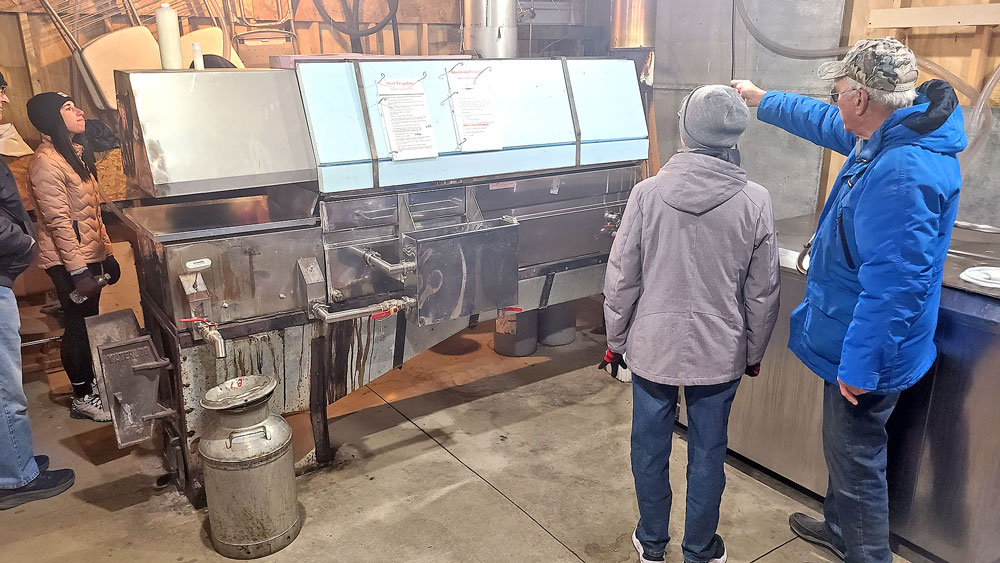Floyd County farmer helped pass new state hemp law

By Bob Steenson, bsteenson@charlescitypress.com
A Floyd County farmer helped push the state’s new hemp law to passage, and now he hopes to take advantage of it to feed his own livestock.
Ethan Vorhes, 35, now of Nashua, has been involved in the industrial hemp movement for several years, and is a member of the board of directors of the Iowa Hemp Association.
“I was looking to make my beef healthier,” said the Rudd-Rockford-Marble Rock graduate who grew up on the family farm near Marble Rock.
He was looking at the properties of different plant oils to add to his cattle feed to increase the amount of conjugated linoleic acid (CLA) in the beef he was producing. Linoleic acid is an omega-6 fatty acid that is believed to have various health benefits in meat and dairy products.
The more he learned about hemp and hemp oil, the more impressed he was, Vorhes said.
“I learned that hemp is a complete protein and has all the essential fatty acids for human health. It’s the only plant-based source,” he said.
“I was blown away,” he said, with information that showed a rotation of corn and hemp instead of corn and soybeans could provide better feed for cattle, better protection for the soil and cleaner water through a reduction in tillage and chemical applications.
“The way we see it is, if we have the cattle we raise on our farm and we can have the corn and the hemp, then we have the protein in the oils, we have the corn, and then we have the cover crops,” Vorhes said.
He learned much of his knowledge about hemp by attending expos and talking to experts, he said, and then he began offering his viewpoint on the issue from the prospective of a working farmer.
After attending and speaking at NoCo Hemp Expos in Denver, Colorado, he became involved in a feasibility study group using hemp and hemp oil in animal feeds, working with the Food and Drug Administration (FDA), the U.S. Department of Agriculture (USDA), the National Animal Supplement Council and possibly the Association of American Feed Control Officials (AAFCO).
“I think that things are coming along well. I’m excited,” he said. “We’re starting to get some good clinical trials underway and get some of our first ingredients approved.”
At the same time, Vorhes continued to work to get a hemp law passed in his own state, Iowa. This session he worked with Sen. Kevin Kinney, a farmer from Oxford, with Iowa State University and others in helping move a hemp bill through the Legislature.
Gov. Kim Reynolds signed the bill into law last week.
During the signing ceremony, where Vorhes received one of the ceremonial signing pens, he said, Kinney approached him and said, “You’re my farmer. I tell a lot of people about you.”
The state will still need to seek approval from the USDA for a state program, said Iowa Secretary of Agriculture Mike Naig. But assuming that’s granted — it is allowed under the 2018 Farm Bill — Iowans could begin growing industrial hemp next year, in 2020.
The law limits growers to no more than 40 acres, and that limitation concerns Vorhes because of the amount that is needed to grow to provide enough oil to help feed his cattle.
“I’m excited that the new law will now allow me to work here where I have the facilities and I have the cattle and I have everything I need to do the research” Vorhes said. “I’m not overly excited about the 40-acre cap, because that kind of limits what I can do.
“I need so much oil for these calves to do the research even, and that leaves me really tight for getting enough oil for my research studies,” he said.
“I do understand why it’s in place,” Vorhes said. “There’s a lot of big companies that were wanting to come to Iowa and try to monopolize the hemp industry, and so this gives family farms a chance to kind of learn what they’re doing and get organized and start to raise the product before big companies come in and put up thousands of acres and run us all out.”
This past winter, Vorhes began working for Third Wave Farms of Mount Vernon, Kentucky, a company that says its mission is “to expand opportunities for American farmers to grow industrial hemp as a sustainable and profitable crop.”
He’s the director of farm operations for Third Wave, overseeing growing hemp on about 1,000 acres in nine different states.
“I oversee the farming, everything up to extraction” of the hemp oil, he said.
“Right now, I’m heading to Kentucky to work down there on a hemp farm, Vorhes said in a recent phone interview with the Press. “I’ve been traveling the country, consulting with different people in the hemp industry.”
He said he’s excited about the possibilities the new hemp law will give Iowa farmers.
Because hemp is more tolerant of cold and holds it leaf canopy longer in the fall, it prevents weeds from getting a late-season start in fields. The plant’s deep and complex root structure helps increase water movement through soils and adds to the organic content, helping bind more carbon into the soil.
Hemp reduces the amount of tillage needed in a field, reduces the amount of herbicides needed and also provides a cash crop in the oil from the seeds, the feed value of the seed cake, and fiber and other uses from other parts of the plant.
“It’s a good, organic system where you kind of produce everything you need. You have your cattle and your livestock feed, and you have the manure. It’s a closed system where you have everything you need to produce the food.”
Ag Secretary Naig advised farmers interested in growing hemp to do the research and make decisions like they would with any crop.
“I’ve said many times I am confident that we can grow industrial hemp in the state of Iowa. We used to and we’re good at growing nearly anything,” Naig told RadioIowa. “It’s really a question in my mind of whether or not folks have a viable market for that product.”
The law requires the hemp plants to have levels of THC — the chemical that produces the “high” in some forms of cannabis — 0.3 percent or less.









Social Share